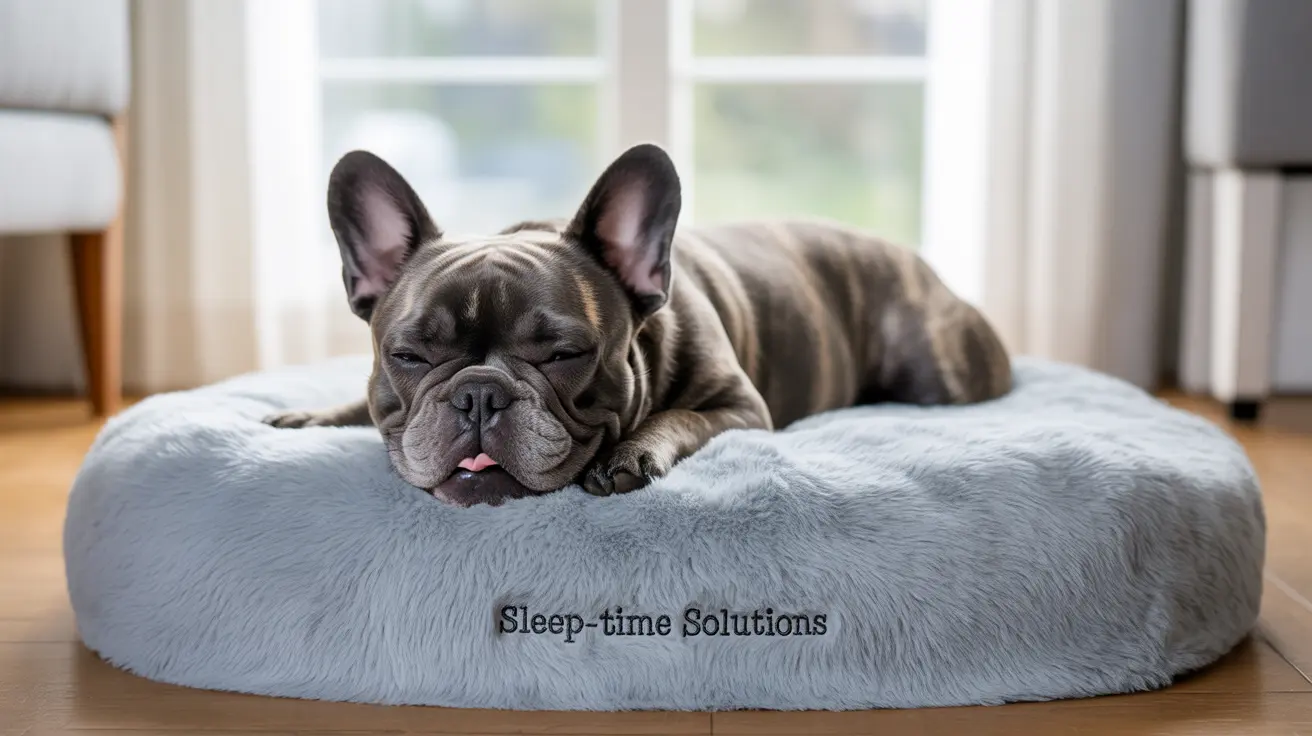If you've noticed your puppy pees in their sleep, you're likely concerned about this unexpected behavior. While occasional accidents can happen during puppyhood, frequent sleep-time urination often signals underlying medical issues that require attention. Understanding why this occurs and when to seek veterinary care is crucial for your puppy's health and well-being.
Common Causes of Sleep-Time Urination in Puppies
Post-Surgical Hormonal Changes
One of the most common reasons puppies pee in their sleep is hormonal changes following spay or neuter surgery. The rapid shift in hormone levels can temporarily affect the urethral sphincter muscle, leading to involuntary urination during rest. This typically resolves within two weeks post-surgery.
Urinary Tract Infections
UTIs are particularly common in puppies, especially females. When inflammation occurs, it can cause urgency and reduced bladder control, which becomes more noticeable during sleep when muscle control is naturally relaxed. Signs of a UTI include increased thirst, cloudy or foul-smelling urine, and frequent urination attempts.
Medical Conditions That Cause Sleep Urination
Anatomical Abnormalities
Some puppies are born with structural issues like ectopic ureters, where the tubes carrying urine from the kidneys bypass the normal bladder control mechanisms. This can result in continuous leakage or accidents during rest periods.
Neurological Issues
Spinal cord problems or nerve dysfunction can interfere with proper bladder control. These conditions may cause involuntary urination during sleep when muscle tone is naturally decreased.
When to Seek Veterinary Care
If your puppy pees in their sleep more than once or twice, especially if they were previously house-trained, immediate veterinary attention is warranted. Other red flags include:
- Excessive thirst or urination
- Blood in the urine
- Signs of pain or discomfort
- Changes in behavior or energy levels
- Fever or lethargy
Management and Prevention Strategies
While awaiting veterinary care or during treatment, several management strategies can help:
- Establish a consistent bathroom schedule
- Limit water intake before bedtime (under veterinary guidance)
- Use waterproof bedding
- Keep detailed records of accidents and symptoms
- Maintain proper hygiene to prevent skin irritation
Frequently Asked Questions
Why does my puppy pee in their sleep after being spayed or neutered?
Post-surgical hormonal changes can temporarily affect bladder control by relaxing the urethral sphincter. This usually resolves within two weeks after surgery but should be monitored by your veterinarian if it persists.
Could a urinary tract infection cause my puppy to urinate while sleeping?
Yes, UTIs are a common cause of sleep urination in puppies. The inflammation and irritation from the infection can lead to reduced bladder control, particularly during sleep when muscle control is naturally relaxed.
What medical conditions can make a puppy pee in their sleep aside from house-training issues?
Several medical conditions can cause sleep urination, including anatomical abnormalities like ectopic ureters, neurological issues, spinal problems, and hormonal imbalances. These are distinct from regular house-training challenges.
When should I take my puppy to the vet for bedwetting or nighttime accidents?
Seek veterinary care if your puppy has more than one or two sleep accidents, especially if they were previously house-trained. Also consult a vet immediately if you notice additional symptoms like increased thirst, blood in urine, or behavioral changes.
How can I manage or prevent my puppy from peeing in their sleep at home?
Establish regular bathroom breaks, especially before bedtime, use waterproof bedding, and maintain good hygiene. However, management alone isn't enough - always work with your veterinarian to identify and treat any underlying medical causes.
Conclusion
While it can be concerning when your puppy pees in their sleep, understanding that this often signals an underlying medical issue rather than a behavioral problem is crucial. Prompt veterinary care and proper management strategies can help resolve the issue and ensure your puppy's health and comfort.






